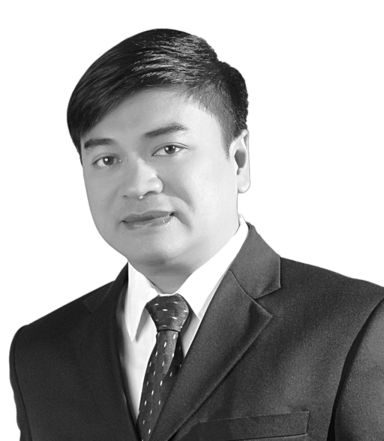
BAÑOC
I remember my experience when I worked in an LGU as an executive assistant to the mayor long time ago. It was then Mayor Socrates Fernandez, now a councilor of Talisay City, who hired me and assigned me to look into important documents before he affixed his signature.
I worked with Mayor Soc because I know that he is a straightforward person. He truly lived with what he preached as a Bible expert. He is known for not accepting any bribe. As a person, he also has weaknesses.
The job he assigned to me exposed me to a lot of pressures. Some chided me when he would not sign a questionable document. Some had a different approach. They tried to be more diplomatic, perhaps expecting that their documents will be signed without delay by the mayor.
One time, in a coffee shop, someone who introduced himself as a businessman approached me and unabashedly offered a huge amount I would supposedly receive if I would help facilitate an irregular transaction he apparently wanted to do with the local government. At first, I believe that he was just joking, so I just let him continue talking.
He discussed about selling medicines to the city government amounting to millions of pesos. He said that my role was just to let the mayor affix his signatures on the documents to make it appear valid. He further said that he would take care of the other city officials.
I asked him on the kind of medicine and its efficacy vis-à-vis the cost of production. He told me to never mind the effectiveness. What was important to him was the money he would get out of the transaction.
When I noticed that he was serious in the said transaction, I firmly but politely declined his offer. You should not allow such conversation to go too long, for operators like him would think you are interested. He stood up and walked away.
On the controversial issue of Dengvaxia, I could not imagine the facts that transpired in the two hearings conducted by the Senate blue ribbon committee and the committee on health. It is confirmed that former President Benigno Aquino met with the officials of Sanofi Pasteur, manufacturer of Dengvaxia, on two occasions prior to the transaction of the controversial vaccine.
It is highly suspicious that Aquino gave time to talk with Sanofi, a corporation with a questionable reputation as pointed out by Senator Richard Gordon, chairman of the blue ribbon committee. I can neither believe that Aquino was blind of the background of Sanofi nor none from his lieutenants briefed him on the matter. At the very least, they failed to conduct due diligence.
The chronology of events presented by Gordon is clear that there was something fishy in the transaction. Let me revisit the facts and timeline presented during the hearing.
In 2014, former President Aquino met with Sanofi officials in China. On December 1, 2015, again Aquino and Health Secretary Janet Garin met with Sanofi officials in Paris, France. Such meetings are confirmed by Aquino himself.
Nine days later, or December 10, Secretary Garin submitted a proposal to the DBM for the procurement of three million doses of dengue vaccine. On December 22, the FDA approved the marketing of Dengvaxia. The following day, or on December 23, then Budget Secretary Florencio Abad recommended to Aquino the release of P3.5 billion as sought by Garin.
On December 29, the DBM issued a Special Allotment Release Order for the funds. In January 2016, Garin made representations to the DOH-run Philippine Children’s Medical Center (PCMC) to purchase Dengvaxia without the approval of the Formulary Executive Council (FEC), a group of experts. That same month, the purchase order was made to Zuellig Pharma, the sole distributor of Dengvaxia in the country.
On February 3, 2016, Garin issued a Certificate of Exemption for Dengvaxia vaccines to be utilized in the pilot implementation in the NCR, Region III and Region IV. Note that Region VII, particularly Cebu, is also a recipient of the vaccine totaling the number of students vaccinated to 830,000.
On March 2016, the World Health Organization (WHO) released a paper saying Dengvaxia “may be ineffective or may even increase that risk in those who are seronegative at that time of first vaccination.” In the same statement, WHO called for more studies into the vaccine.
Nevertheless, the purchase was consummated in the same month; and in the following month of April 2016, a month prior to the election, the DOH kicked off its P3.5-billion school-based dengue immunization program.
The basic questions are why the haste when dengue is not even in the top 10 illness identified by DOH as priority? Why in a hurry when the study of the vaccine was not yet completed? Can those involved in the transaction still sleep well at night after Sanofi’s revelation of its latest study?
Were there kickbacks on the Dengvaxia transaction? I can’t blame myself for believing so.